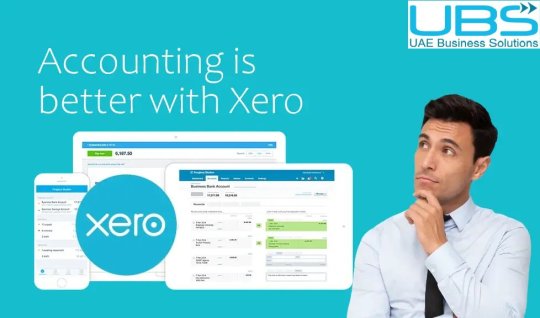#Wave Accounting Software Training
Explore tagged Tumblr posts
Text
Freelancer Tax Deductions Guide - Introduction Freelancers and independent contractors enjoy the freedom of being their own boss, but with that freedom comes the responsibility of managing their taxes. Unlike salaried employees, freelancers don’t have tax automatically deducted from their income, making tax planning crucial. One of the best ways to reduce your tax liability is by understanding and utilising tax deductions. This guide will walk you through essential deductions that can help you keep more of your hard-earned money. Common Tax Deductions Available Freelancers and independent contractors can deduct many business-related expenses. Below are some key deductions to be aware of: 1. Business Expenses Any expense necessary for running your business can typically be deducted. Examples include:✅ Office supplies (pens, notebooks, printer ink, etc.)✅ Business software and subscriptions (accounting software, Adobe Suite, Zoom, etc.)✅ Website hosting and domain registration✅ Marketing and advertising costs 2. Travel and Transportation If you travel for business, you may be able to deduct related expenses, such as:✅ Mileage on your personal vehicle for business-related trips (keep a logbook!)✅ Airfare, accommodation, and meals for business trips✅ Taxi, Uber, or rental car costs 3. Home Office Deduction If you work from home, you may qualify for a home office deduction. The space must be:✅ Used exclusively for business✅ Your primary place of workDeductible expenses include a percentage of rent, utilities, and home internet costs. 4. Education and Training Investing in your skills is tax-deductible if it’s related to your business. This includes:✅ Online courses and workshops✅ Professional training and CPD✅ Books and subscriptions to industry-related materials 5. Communication Expenses Since most freelancers rely on digital communication, expenses like these may qualify:✅ Business-related phone calls and data plans✅ Internet service used for work✅ Business software subscriptions (e.g., project management tools) How to Keep Track of Your Expenses Keeping organized records is critical for maximizing tax deductions and avoiding issues with SARS. Here’s how to stay on top of your expenses:✔ Keep all receipts – Digital or physical copies of receipts are crucial proof of business expenses.✔ Use expense-tracking apps – Apps like Xero, Zoho Books, QuickBooks, or Wave can automate expense tracking.✔ Maintain a spreadsheet – Categorizing your expenses regularly prevents last-minute stress during tax season.✔ Separate business and personal finances – Having a dedicated business account makes tracking deductions easier. The Impact of Deductions on Your Tax Bill Tax deductions lower your taxable income, which means you pay less tax. For example: - If your total income is R500,000 and you claim R100,000 in deductions, you’ll only be taxed on R400,000. - This can significantly reduce your tax bill and free up money for business growth. The more deductions you claim (legitimately), the less tax you owe. However, it’s essential to track them correctly and ensure they comply with SARS regulations. What’s Not Deductible? Not everything you spend money on qualifies for a deduction. Here are some non-deductible expenses:❌ Personal groceries and household bills❌ Non-business entertainment expenses❌ Personal clothing (unless it’s specific protective gear required for your work)❌ Fines or penalties❌ Any unverified expenses (SARS may require proof of business-related use) How Eva Financial Solutions Can Help Understanding tax deductions can be overwhelming, especially if you’re juggling multiple clients and projects. That’s where Eva Financial Solutions comes in! 💡 We help freelancers and independent contractors:✔ Maximize their tax deductions✔ Ensure compliance with SARS regulations✔ Keep financial records clean and organized✔ File tax returns correctly and on time Conclusion Tax deductions are an essential tool for freelancers and independent contractors to reduce their tax burden. Staying organized, keeping records, and understanding what qualifies as a deduction can save you thousands of rands. For expert guidance and stress-free tax filing, contact Eva Financial Solutions today! Let us help you keep more of your hard-earned money while staying fully compliant. 📞 Get in touch now for a consultation! 🚀 Read the full article
0 notes
Text
Choosing the Right Accounting Packages for Your Small Business
Managing finances is a cornerstone of small business success, and the right accounting package can make all the difference. From tracking expenses to generating financial reports, modern accounting solutions are designed to simplify your operations and save valuable time. Here’s what small business owners need to know about selecting the best accounting packages.
1. Why Small Businesses Need Accounting Software
Small business owners often juggle multiple roles, leaving little time for manual bookkeeping. Accounting software offers several key benefits:
Accuracy: Minimize errors in financial calculations.
Time Efficiency: Automate repetitive tasks like invoicing and payroll.
Compliance: Ensure adherence to tax regulations and deadlines.
Financial Insights: Generate detailed reports to guide decision-making.
Scalability: Support business growth without the need for additional manual processes.

2. Features to Look For in Accounting Packages
When evaluating accounting packages, consider the specific needs of your business. Essential features include:
Expense Tracking: Monitor and categorize expenses for better budget management.
Invoicing: Create and send professional invoices quickly.
Bank Reconciliation: Sync with bank accounts for accurate transaction records.
Tax Management: Automate tax calculations and generate reports for filings.
Payroll Integration: Manage employee payments and benefits seamlessly.
Cloud Accessibility: Access your data from anywhere with secure cloud storage.
Customization: Adaptable tools for different industries and business sizes.
3. Top Accounting Packages for Small Businesses
Here are some popular accounting software options tailored to small businesses:
QuickBooks: Ideal for startups and small businesses, offering robust features like invoicing, expense tracking, and tax preparation.
Xero: Known for its user-friendly interface and strong integration capabilities.
FreshBooks: Best for service-based businesses, with excellent time-tracking and invoicing tools.
Wave: A free accounting solution for very small businesses, covering invoicing and basic reporting.
Zoho Books: A comprehensive tool that integrates with other Zoho apps for enhanced functionality.
4. How to Choose the Best Option
Selecting the right accounting package depends on your unique requirements. Consider the following:
Budget: Choose a package that fits your financial constraints.
Business Size: Ensure the software can accommodate your current operations and future growth.
Ease of Use: Opt for a user-friendly interface to reduce the learning curve.
Customer Support: Look for reliable support services to address issues promptly.
Industry-Specific Needs: Some packages offer tailored features for specific industries.

5. Maximizing the Value of Your Accounting Software
To get the most out of your accounting package:
Regularly Update Records: Keep your financial data accurate and up-to-date.
Train Your Team: Ensure employees understand how to use the software effectively.
Leverage Reports: Use analytics and insights to make informed business decisions.
Integrate Tools: Connect the software with other business systems like CRM or inventory management.
Final Thoughts
Choosing the right accounting package for your small business is an investment in efficiency, compliance, and growth. By evaluating your needs and comparing features, you can find a solution that simplifies financial management and sets your business up for long-term success. Take the first step today by exploring the options available and selecting the one that best suits your business goals.
0 notes
Text
Top 10 High-Paying Jobs in Canada for 2025 – Explore Career Opportunities Now!
Canada is set to offer exciting opportunities for skilled professionals in 2025. With salaries surpassing $100,000 in top industries, this is the perfect time to explore a career in Canada. Here’s a detailed guide to the highest-paying jobs, provincial job trends, and how Wave Visas Immigration can help you secure a job in Canada.

Table of Contents
Overview of High-Paying Jobs in Canada for 2025
Top Sectors Offering High Salaries in 2025
Top 10 High-Paying Jobs in Canada
Skilled Trades
Business Administration
Customer Care
Finance and Accounting
Healthcare
Technology and Engineering
Sales and Marketing
Education and Training
Province-Wise Job Opportunities
Ontario
British Columbia
Nova Scotia
New Brunswick
Quebec
Wave Visas Immigration: Your Path to Canada
1. Overview of High-Paying Jobs in Canada for 2025
In 2025, Canada’s job market is projected to offer competitive salaries, robust benefits, and job security, especially for foreign workers. Skilled professionals in sectors like healthcare, technology, and finance can earn over $100,000 annually, making Canada a prime destination for job seekers worldwide.
2. Top Sectors Offering High Salaries in 2025
Here are the leading sectors offering lucrative job opportunities:
Skilled Trades: Includes welders, electricians, and machine operators.
Business Administration: HR managers and business analysts are in high demand.
Healthcare: Roles like nurses, family physicians, and pharmacists lead the way.
Technology and Engineering: Software developers, industrial engineers, and IT specialists are among the top earners.
Sales and Marketing: Marketing managers and technical sales specialists continue to see high salaries.
3. Top 10 High-Paying Jobs in Canada
Skilled Trades
Electricians, welders, and machine operators are in demand.
Annual Salary: $60,000 - $90,000
Business Administration
HR managers and business analysts are key roles.
Annual Salary: $46,800 - $100,000
Customer Care
Customer service specialists play a vital role in various industries.
Annual Salary: $40,000 - $60,000
Finance and Accounting
Accountants and financial analysts are among the top earners.
Annual Salary: $63,997 - $121,327
Healthcare
Nurses, family physicians, and allied health professionals are highly paid.
Annual Salary: $87,999 - $200,100
Technology and Engineering
Software developers, engineers, and IT managers are key players in this sector.
Annual Salary: $85,722 - $146,250
Sales and Marketing
Marketing managers and technical sales specialists are sought after.
Annual Salary: $74,034 - $103,135
Education and Training
Teachers and educational consultants have stable, high-paying careers.
Annual Salary: $49,375 - $58,500
4. Province-Wise Job Opportunities
Ontario
Top Jobs: IT Analysts, Software Engineers, Hospital Nurses
Salary Range: $46,800 - $90,022
British Columbia
Top Jobs: Computer Programmers, Industrial Engineers, Welders
Salary Range: $62,400 - $146,250
Nova Scotia
Top Jobs: General Practitioners, Electrical Engineers, Pharmacists
Salary Range: $60,650 - $200,100
New Brunswick
Top Jobs: Nurses, Marketing Analysts, Family Physicians
Salary Range: $31,840 - $195,357
Quebec
Top Jobs: Registered Nurses, Business Managers, Software Developers
Salary Range: $33,150 - $103,135
5. Wave Visas Immigration: Your Path to Canada
Wave Visas Immigration offers comprehensive assistance for foreign professionals looking to work in Canada. From visa applications to job search guidance, we make your journey to Canada seamless.
Conclusion Canada’s job market in 2025 promises excellent opportunities with high salaries and secure careers. Whether you’re in healthcare, technology, or skilled trades, there’s a role waiting for you. Take the first step toward your dream job in Canada with Wave Visas Immigration—your trusted partner for overseas opportunities.
#immigration consulting for study abroad visas#studyinabroad#tourist visa#visaconsultants#visaservices#wave visas immigration#immigration
0 notes
Text
B2B Business Ideas

Best B2B Business Ideas in India 2025
The B2B landscape in India is full of opportunities, especially for those who can identify and address the needs of other businesses. From B2B product ideas like custom packaging to B2B service business ideas like digital marketing for niche industries, the possibilities are endless. Entrepreneurs who adopt innovative approaches and stay attuned
As India continues to evolve into a global economic powerhouse, the demand for innovative and effective B2B business ideas is on the rise. The B2B sector, which involves transactions between businesses rather than between businesses and consumers, offers numerous opportunities for entrepreneurs looking to establish a profitable venture. In this blog, we will explore some of the best B2B startup ideas, B2B service business ideas, B2B online business ideas, and B2B product ideas that are expected to thrive in 2025.
LEARN MORE ABOUT BUSINESS IDEAS
Why Focus on B2B Business Ideas?
The B2B market is characterized by larger transaction sizes and repeat business opportunities, making it a lucrative field for entrepreneurs. With the increasing digitalization of businesses and the growing need for specialized services, there are ample opportunities for innovative small B2B business ideas.
Here are some promising avenues to consider:
1.Cloud Kitchen Solutions

Cloud kitchens are gaining traction in India, and providing solutions to these businesses can be a highly profitable niche. A B2B venture could involve offering kitchen equipment, software for inventory management, or delivery logistics services.
Why It Works: The food delivery market in India is booming, and cloud kitchens are a cost-effective model.
Potential Clients: Restaurant startups, food delivery aggregators, and standalone cloud kitchens.
2. SaaS Platforms for SMEs

Small and medium enterprises (SMEs) in India often lack access to affordable, scalable software. Developing SaaS (Software as a Service) products tailored to their needs is one of the most promising B2B online business ideas.
Examples: Accounting software, customer relationship management (CRM) tools, or supply chain management platforms.
Why It Works: SaaS solutions are subscription-based, ensuring recurring revenue.
3. E-Waste Management Services

With India generating millions of tons of electronic waste annually, a B2B service for e-waste recycling can address both environmental concerns and business needs.
Target Market: IT companies, manufacturing units, and educational institutions.
Why It’s Profitable: Government regulations are pushing businesses to adopt sustainable practices.
4. Industrial Automation Services

Automation is transforming industries, and providing automation solutions to manufacturing units can be a lucrative business idea. This includes robotics, IoT devices, and AI-driven systems.
Potential Clients: Factories, assembly lines, and warehouses.
Growth Potential: Industrial automation reduces costs and increases efficiency, making it attractive to businesses.
5. Digital Marketing Agencies for Niche Industries

While digital marketing agencies are not new, specializing in niche industries like healthcare, agriculture, or education can set you apart.
Key Services: SEO, content marketing, PPC campaigns, and social media management.
Why It’s a Good Idea: Many businesses in niche sectors lack in-house expertise in digital marketing.
6. B2B E-Commerce Platforms

A B2B e-commerce platform connecting manufacturers with retailers, or wholesalers with small businesses, is one of the most profitable B2B businesses today.
Examples: Platforms for bulk grocery orders, industrial supplies, or office equipment.
Why It Works: The e-commerce wave is no longer limited to B2C; businesses are increasingly buying online.
7. Corporate Training Services
With industries evolving rapidly, businesses need to upskill their workforce. Offering specialized corporate training programs, either in-person or online, can be a profitable venture.
Focus Areas: Technology, leadership, and compliance training.
Target Market: IT firms, startups, and established corporations.
8. Green Energy Solutions

Renewable energy is a growing sector in India. Providing B2B solutions such as solar panel installation, energy audits, or green energy certifications can be lucrative.
Potential Clients: Large corporations, real estate developers, and manufacturing units.
Why It’s Important: Companies are looking for ways to reduce their carbon footprint.
9. Custom Packaging Solutions

With the rise of e-commerce, the demand for custom and sustainable packaging is skyrocketing. This is one of the most promising small B2B business ideas with a focus on eco-friendliness.
Services: Designing and manufacturing eco-friendly packaging for e-commerce and retail businesses.
Target Audience: E-commerce companies, food delivery services, and exporters.
10. B2B Healthcare Solutions
Healthcare is an evergreen industry, and providing B2B solutions such as medical equipment, software for hospital management, or telemedicine platforms can be highly rewarding.
Target Clients: Hospitals, clinics, and pharmaceutical companies.
Why It’s Lucrative: The healthcare sector’s growth ensures a steady demand.
Tips for Starting a B2B Business in India
Starting a B2B business requires careful planning and execution. Here are some tips to succeed:
Market Research: Identify a niche with unmet demand and tailor your services or products accordingly.
Build Strong Relationships: B2B businesses thrive on trust and long-term partnerships.
Leverage Technology: Use digital tools and platforms to streamline operations and improve customer experience.
Focus on Quality: Unlike B2C, B2B clients often prioritize quality and reliability over price.
Network Aggressively: Attend industry events and trade shows to connect with potential clients.
Conclusion
The B2B landscape in India is full of opportunities, especially for those who can identify and address the needs of other businesses. From B2B product ideas like custom packaging to B2B service business ideas like digital marketing for niche industries, the possibilities are endless. Entrepreneurs who adopt innovative approaches and stay attuned to market trends will find 2025 an excellent year to launch or expand their ventures.
Are you ready to take the plunge into the world of B2B business ideas?
#digital marketing#cloud kitchen#e commerce website#e waste#automation#healthcare#customer service#ai generated#poets on tumblr
1 note
·
View note
Text
The report lists the professions in Canada that will see pay increases in 2025.
Table of Contents:
Introduction: Navigating Canada's Growing Job Market in 2025
IT Sector: Booming Salaries and Opportunities
Digital Marketing and Communications: The Rise of Digital Careers
Finance Sector: Steady Pay Growth
Human Resources: A Sector in Demand
Automation and Specialized Skills: Future-Proof Professions
How Wave Visas and Wave Immigration Consultant Can Help Your Canada Immigration Journey
Conclusion: Your Path to Success in Canada’s Thriving Job Market

1. Introduction: Navigating Canada's Growing Job Market in 2025
As Canada continues to expand its economy and embrace digital transformation, the demand for skilled professionals is on the rise. According to a recent Randstad Canada salary guide, certain sectors are poised for significant growth in 2025. Whether you're a recent graduate or a seasoned professional looking for new opportunities, it's important to stay updated on salary trends and the top sectors that are seeing the biggest pay bumps. This guide not only highlights some of the most promising fields but also offers tips on how to break into these high-demand professions.
If you’re considering Canada immigration and looking to align your career with the country’s growing industries, working with a trusted immigration consultant can make a world of difference. Wave Visas, recognized as one of the best immigration consultants in Delhi/NCR, can help you navigate this exciting opportunity and secure your future in Canada.
2. IT Sector: Booming Salaries and Opportunities
The Information Technology (IT) sector is expected to continue its robust growth, with businesses increasingly adopting new digital technologies. Cloud architects, in particular, are predicted to see salary increases of up to 10% in 2025. With companies focusing on cloud computing, cybersecurity, and data management, IT professionals are in high demand.

To break into the IT field, a degree in computer science, software engineering, or information technology is often required. If you're planning to immigrate to Canada, ensuring you have the right qualifications and certifications will significantly improve your chances of landing a job in this lucrative sector.
Wave Visas, as a trusted immigration consultant, can provide you with guidance on the immigration processes and help you find the right programs to align your IT career aspirations with Canadian job market needs.
3. Digital Marketing and Communications: The Rise of Digital Careers
With businesses continually adapting to the digital world, digital marketing remains an essential field. The Randstad report highlights a 9% salary increase for digital marketing specialists in intermediate roles, pushing their average salary from $68,000 to $74,120. As more companies shift to online platforms, demand for skilled marketers in areas like SEO, social media, and influencer marketing is on the rise.

For those aspiring to enter digital marketing, a bachelor's degree in marketing, communications, or business can provide a solid foundation. Specialized training through bootcamps or online courses will also help you stay ahead of industry trends. Digital marketing is an area where Canada is actively seeking international talent, and working with an experienced Canada immigration consultant like Wave Visas can help you find the right path to success.
4. Finance Sector: Steady Pay Growth
The finance sector in Canada is also seeing consistent salary increases, with compensation analysts expecting a 7% rise for intermediate roles. Professionals with expertise in financial analysis, accounting, and economic forecasting are needed across a variety of industries.

To excel in the finance field, a degree in business administration, economics, or accounting is essential. If you are looking for Canada immigration to pursue a career in finance, obtaining certifications such as Chartered Financial Analyst (CFA) or Chartered Professional Accountant (CPA) will help elevate your profile.
The team at Wave Visas can guide you through the process of getting certified in Canada and provide insight into the best routes for finance professionals to immigrate and thrive in the Canadian job market.
5. Human Resources: A Sector in Demand
The increasing emphasis on diversity and inclusion in the workplace is driving up salaries for Human Resources (HR) professionals. In particular, senior HR roles focusing on diversity management could see salary increases of 12%, potentially raising salaries from $110,000 to $123,200.

A degree in human resources, commerce, business administration, or even social sciences is usually required to enter the HR field. If you're considering Canada immigration for HR roles, obtaining certifications like the Certified Human Resources Professional (CHRP) could enhance your job prospects and earning potential.
To learn more about the requirements and opportunities for HR professionals in Canada, consulting a reliable immigration expert like Wave Visas can help you understand the steps to take.
6. Automation and Specialized Skills: Future-Proof Professions
In sectors like manufacturing and logistics, automation technicians and electromechanics are expected to see salary increases of 8% in 2025. These professionals play a critical role in the maintenance and optimization of automated systems, such as robotic devices and computer-controlled machines.

A technical diploma or degree in electronics, mechanics, or automation is typically required to break into this field. As Canada continues to invest in automation technologies, demand for skilled professionals will only grow. With the right expertise and qualifications, this sector offers promising job opportunities for immigrants.
If you are considering a career in automation and looking to immigrate to Canada, Wave Visas can help you navigate the immigration process and secure the necessary credentials to work in this expanding field.
7. How Wave Visas and Wave Immigration Consultant Can Help Your Canada Immigration Journey
Navigating the Canadian immigration process can be challenging, but with the right guidance, it becomes much more manageable. Wave Visas, a leading immigration consultant in Delhi/NCR, specializes in helping individuals with career aspirations in high-demand sectors like IT, digital marketing, finance, HR, and automation. Whether you need help understanding the Express Entry program or ensuring your qualifications meet Canadian standards, their team offers personalized advice and comprehensive support throughout the immigration process.
As one of the best immigration consultants in Delhi/NCR, Wave Visas has a proven track record of helping clients successfully immigrate to Canada and start their new careers with confidence.
8. Conclusion: Your Path to Success in Canada’s Thriving Job Market
Canada’s job market in 2025 looks promising, with salaries in various high-demand sectors expected to rise. Whether you're interested in IT, digital marketing, finance, HR, or automation, now is a great time to start preparing for your career in Canada.
If you’re considering Canada immigration to take advantage of these opportunities, working with a trusted immigration consultant like Wave Visas will help ensure that your journey is as smooth and successful as possible. With the right guidance, you can tap into Canada’s growing industries, secure a rewarding job, and build a bright future in one of the world’s most dynamic countries.
Corporate Office : 2nd Floor, Right Side, Building No. 5, Kehar Singh Estate Westend Marg, Lane No. 2, Saidulajab, Saket New Delhi 110030.
Visit- https://wavevisas.com/canada-immigration
#consultant service#immigration services#wavevisas#consultant#visa#canada immigration#canadaimmigration
0 notes
Text
The Landscape of Australian Accounting Firms: Trends, Challenges, and Innovations

Introduction
Australia’s accounting industry plays a crucial role in the country’s economy, providing essential services such as auditing, taxation, consulting, and advisory to businesses and individuals alike. As the financial environment evolves, Australian accounting firms are adapting to new challenges and opportunities. This article explores the current landscape of accounting firms in Australia, highlighting key trends, challenges they face, and innovative practices that are shaping the future of the industry.
Current Trends in Australian Accounting Firms
Technology Integration The rise of digital technology is transforming how accounting firms operate. Cloud-based accounting software, automation, and artificial intelligence are streamlining processes, reducing manual workloads, and enhancing accuracy. Many firms are adopting solutions like Xero and MYOB to improve efficiency and provide real-time financial data to clients.
Increased Demand for Advisory Services Traditionally focused on compliance and reporting, many accounting firms are expanding their service offerings to include strategic advisory. Businesses are seeking expert guidance on financial planning, risk management, and business transformation, driving firms to develop specialized expertise.
Sustainability and ESG Reporting With growing awareness of environmental, social, and governance (ESG) issues, firms are increasingly involved in sustainability reporting. This trend reflects a broader shift towards corporate responsibility, with clients looking for guidance on sustainable practices and transparent reporting.
Remote Work and Flexibility The COVID-19 pandemic accelerated the adoption of remote work, prompting many firms to embrace flexible working arrangements. This shift has not only changed workplace dynamics but has also broadened talent pools, enabling firms to hire skilled professionals regardless of geographical limitations.
Challenges Facing the Industry
Regulatory Changes The accounting landscape is heavily regulated, and firms must stay updated on evolving laws and standards. Changes in tax regulations, financial reporting standards, and compliance requirements can pose significant challenges for firms, necessitating continuous education and training.
Talent Shortage The demand for skilled accountants is outpacing supply, leading to a talent shortage in the industry. Firms are competing for top talent, often offering competitive salaries and benefits, while also focusing on creating a positive workplace culture to attract and retain employees.
Cybersecurity Risks As firms increasingly rely on digital tools and store sensitive financial data online, they become targets for cyberattacks. Protecting client information and ensuring data security is a growing concern that requires ongoing investment in technology and training.
Innovations Reshaping the Industry
Blockchain Technology Blockchain is making waves in the accounting sector, offering new ways to enhance transparency and security in financial transactions. Firms are exploring blockchain for auditing processes, improving accuracy, and reducing the potential for fraud.
Data Analytics Advanced data analytics tools enable firms to provide deeper insights into financial performance. By leveraging big data, accountants can help clients make informed decisions based on real-time information, enhancing their advisory capabilities.
Client-Centric Approaches Many firms are shifting towards a more client-centric model, focusing on building long-term relationships and understanding clients’ unique needs. This approach fosters loyalty and drives business growth, as firms tailor their services to provide maximum value.
Conclusion
The accounting industry in Australia is undergoing significant transformation, driven by technological advancements, changing client expectations, and evolving regulatory landscapes. While challenges such as talent shortages and cybersecurity risks persist, accounting firms are finding innovative solutions to navigate these hurdles. By embracing technology and enhancing service offerings, Australian accounting firms are positioning themselves for future success in a dynamic environment. As the industry continues to evolve, staying adaptable and client-focused will be key to thriving in this competitive field.
Original Source: Top Accounting Firms Australia
#top accounting firms australia#australian accounting firms#Accountant near me#accounting firms near me
1 note
·
View note
Text
Leading the Way: Top 50 CA Firms in India Making a Difference
In the ever-evolving landscape of finance and accounting, Chartered Accountants (CAs) play a pivotal role in ensuring transparency, compliance, and strategic financial planning for businesses. Among the myriad of firms across the country, a select group stands out for their exceptional service and commitment to excellence. This blog will delve into the top 50 CA firms in India, with a special focus on how they are making a difference in the industry.
One of the notable firms making waves in this dynamic sector is SBC, located in Madhapur, Hyderabad. With a rich legacy and a forward-thinking approach, SBC exemplifies the innovative spirit of the top 50 CA firms in India. Their comprehensive range of services includes auditing, taxation, financial advisory, and consultancy, making them a one-stop solution for businesses looking to navigate the complexities of financial management.
Commitment to Excellence
The top 50 CA firms in India are recognized not only for their extensive expertise but also for their commitment to quality and integrity. These firms employ a highly skilled workforce that adheres to the strictest professional standards. At SBC, the focus on continuous education and training ensures that their team remains at the forefront of industry developments and regulatory changes.
Driving Change through Innovation
Innovation is key to staying relevant in today’s fast-paced business environment. Many of the top 50 CA firms in India, including SBC, have embraced technology to enhance their service delivery. From advanced accounting software to AI-driven analytics, these firms leverage cutting-edge tools to provide clients with real-time insights and improved financial management. This shift not only boosts efficiency but also allows businesses to make informed decisions quickly.
Focus on Client-Centric Services
One of the defining characteristics of the top 50 CA firms in India is their client-centric approach. Firms like SBC prioritize understanding their clients’ unique needs and challenges, tailoring solutions accordingly. This level of personalization fosters long-term relationships and trust, which are crucial in the financial sector. By providing proactive advice and strategic planning, these firms empower businesses to achieve their financial goals.
Social Responsibility and Ethical Practices
As leaders in the industry, the top 50 CA firms in India also recognize their social responsibility. Many of them, including SBC, actively engage in initiatives that contribute to the community. Whether it’s through financial literacy programs, sustainability efforts, or charitable activities, these firms are committed to making a positive impact beyond their client base.
Conclusion
In summary, the top 50 CA firms in India are not just service providers; they are catalysts for change in the business environment. Their dedication to excellence, innovation, client-centric services, and social responsibility sets them apart in a competitive landscape. SBC in Madhapur, Hyderabad, exemplifies these qualities, making it a prominent player among the top CA firms.
If you're looking to collaborate with a trusted partner for your financial needs, reach out to SBC at 040-48555182. Together, we can navigate the complexities of finance and pave the way for a brighter, more prosperous future.
By choosing one of the top 50 CA firms in India, you're not just investing in your business; you're investing in a relationship built on trust, expertise, and a shared vision for success.
#top 20 ca firms in hyderabad#top 20 ca firms in madhapur#top 50 ca firms in hitech city#top 50 ca firms in india#top 50 ca firms in madhapur
0 notes
Text
A Digital Transformation for SMEs: The Role of ERP
The digital age has ushered in a wave of transformation for businesses of all sizes. Small and Medium-sized Enterprises (SMEs) are increasingly recognizing the need to embrace digital technologies to remain competitive and thrive in today's market. Enterprise Resource Planning (ERP) systems have emerged as a pivotal tool in facilitating this digital transformation.
ERP systems, once primarily associated with large corporations, have evolved to become more accessible and adaptable to the needs of SMEs. These software solutions integrate various business functions, such as finance, human resources, supply chain management, and customer relationship management, onto a single platform. By streamlining operations and providing a unified view of the business, ERP systems can significantly enhance efficiency and productivity.
For SMEs, the benefits of implementing an ERP system are manifold. First, ERP systems can improve operational efficiency by automating repetitive tasks and reducing manual data entry. This frees up employees to focus on higher-value activities and minimizes the risk of errors. Second, ERP systems provide real-time visibility into business performance, enabling SMEs to make data-driven decisions. This can help identify areas for improvement, optimize resource allocation, and mitigate risks. Third, ERP systems can enhance collaboration and communication within the organization, fostering a more cohesive and responsive business culture.
Moreover, ERP systems can play a crucial role in supporting SMEs' digital transformation initiatives. By providing a solid foundation for digital integration, ERP systems can facilitate the adoption of other technologies, such as cloud computing, artificial intelligence, and the Internet of Things. For example, ERP systems can be integrated with cloud-based applications to enable remote work and improve data accessibility. Additionally, ERP systems can be used to collect and analyze data from IoT devices, providing valuable insights into operations and customer behavior.
However, implementing an ERP system is not without its challenges. SMEs may face limitations in terms of budget, resources, and IT expertise. To overcome these hurdles, it is essential for SMEs to carefully evaluate their needs and select an ERP solution that is scalable, flexible, and affordable. Additionally, SMEs should invest in adequate training and support to ensure successful implementation and adoption of the ERP system.
In conclusion, ERP systems offer SMEs a powerful tool for digital transformation. By streamlining operations, providing real-time insights, and facilitating the integration of other technologies, ERP systems can help SMEs to improve efficiency, enhance decision-making, and achieve sustainable growth. As the digital landscape continues to evolve, SMEs that embrace ERP systems will be well-positioned to thrive in the competitive marketplace.
Article in courtesy of MPS Solutions - SAP Business One Software Solutions - ERP Software Solutions and Customisation, CRM, Accounting, and IT helpdesk outsource, remote, onsite, support services for all your company in Singapore.
0 notes
Text
Ethical considerations in AI development

Ethics in AI Development: Charting a Course for the Future With responsibility
First of all, AI's Expanding Role and the Ethics Requirement
Artificial intelligence (AI) is quickly permeating every aspect of our life, impacting everything from education and entertainment to healthcare and finance. AI systems pose important ethical issues as they become more powerful and complex. These inquiries address potential for harm, accountability, transparency, and fairness. The ethical issues surrounding AI development are examined in this article, emphasizing the significance of developing AI systems that are not only efficient but also consistent with society norms and human values.
Fairness: Maintaining Justice and Equality
1. Handling Algorithm Bias in AI
The possibility of bias in algorithms is one of the most urgent ethical issues in AI research. Because AI systems learn from data, they may generate biased results if the data is biased. For instance, if an AI hiring system is trained using data from a business that has traditionally given preference to a particular demographic group, the system might keep favoring that group, thus sustaining inequality.
It is important to give careful thought to bias during the development process. Developers are responsible for making sure that the algorithms are tested for fairness and that the data used to train AI systems is representative of all groups. It is possible to lessen bias by using strategies like adversarial debiasing and fairness constraints. However, continual observation and assessment are necessary to preserve equity over time.
2. Explainability and Transparency
Artificial intelligence (AI) systems frequently function as "black boxes," making decisions without providing transparent justifications. Because of this lack of transparency, it may be difficult to hold AI systems responsible for their actions and may even breed mistrust. For instance, it could be difficult for the applicant to challenge a decision made by an AI system if it rejects a loan application because they won't know why.
A growing focus is on creating AI systems that are transparent and explainable in order to address this problem. This entails developing algorithms that can justify their choices in a comprehensible manner. In high-stakes fields like healthcare, criminal justice, and finance, where the results of AI decisions have significant ramifications, explainability is particularly crucial may alter one's life.
The Genius Wave (Download)
Accountability: Who Bears the Final Say in AI?
1. Accountability and Duty
Accountability concerns arise more frequently as AI systems assume more independent roles. Who is at fault in an accident caused by an AI-driven vehicle? Who is at fault here—the car owner, the software developer, or the manufacturer? These are difficult moral and legal issues that call for precise rules and laws.
Companies and developers need to answer for the AI systems they build. This involves making certain AI systems are trustworthy, safe, and compliant with the law and moral standards. To establish accountability and culpability in situations where AI systems cause harm, regulatory frameworks are required.
2. Human Supervision
Human oversight is still necessary even as AI systems get more powerful. Artificial intelligence ought to support and enhance human judgment, not completely replace it. This is especially crucial in fields where human judgment and empathy are valued, such as healthcare and law enforcement.
Artificial intelligence (AI) systems that include human oversight can help avoid mistakes and guarantee that choices are made ethically. AI, for instance, can help physicians in the healthcare industry by suggesting diagnoses, but human professionals should always make the final decision.
Privacy: Safeguarding Individual Information
1. Privacy Issues with Data
For AI systems to work well, enormous volumes of data are required, many of which contain sensitive and private information. There are serious privacy issues here. How are these data gathered, saved, and put to use? For what purposes, and by whom, is it accessible? The debate over AI ethics revolves around these questions.
By putting strong security measures in place and abiding by data protection laws, like the General Data Protection Regulation (GDPR) in Europe, developers can demonstrate their commitment to data privacy. The people whose data is being used must give their consent; they should also have the right to know how it is being used and, if desired, to request that it be deleted.
2. AI and Surveillance
Artificial intelligence (AI) has the potential to greatly improve monitoring capabilities,

The Genius Wave (Download)
which raises issues with civil liberties and privacy. For instance, law enforcement can make use of facial recognition technology. However, there is also a chance that it will be abused, for example, by tracking people without their permission or unfairly singling out particular groups.
It's challenging to strike a balance between the advantages of AI-driven surveillance and the requirement to preserve personal privacy. To guarantee that artificial intelligence is used in ways that respect human rights and do not restrict personal freedoms, rigorous regulation, oversight, and public discussion are necessary.
Security: Preserving AI Frameworks
1. Cybersecurity and AI
The security of AI systems is becoming increasingly important as they are incorporated into vital infrastructure. Cyberattacks may target AI systems directly, and if they are taken down, the consequences could be severe. An AI system in charge of an autonomous car or power grid, for instance, could be tricked into causing mayhem.
Developers must give the security of AI systems top priority from the outset in order to mitigate these risks. This entails putting robust encryption into place, conducting frequent security audits, and creating AI systems that are capable of identifying and neutralizing possible threats. To create systems that are both powerful and secure, cooperation between cybersecurity experts and AI developers is crucial.
2. AI and Ethical Hacking
"White-hat" hacking, also known as ethical hacking, is essential for finding and fixing security holes in AI systems. Ethical hackers can assist developers in identifying and fixing vulnerabilities before malevolent actors take advantage of them by modeling attacks. Ensuring the safety and security of AI technologies requires a proactive approach.
Developers ought to think about the moral ramifications of applying AI to cybersecurity. AI, for instance, can be used to create more advanced cyberattacks as well as automate cyberdefenses. To guarantee that AI is only used defensively and does not escalate cyber conflicts, ethical guidelines are required.
Impact on Humans: AI's Social and Economic Repercussions
1. Economic inequality and job displacement
One of the most talked-about ethical issues with AI is that it could replace jobs. Many traditional jobs may be at risk as AI and automation proliferate, causing social unrest and economic inequality. For instance, manufacturing automation fueled by AI may result in a large loss of jobs for factory workers.
The Genius Wave (Download)
To tackle this obstacle, a diverse strategy is needed. Governments, businesses, and academic institutions must collaborate to offer opportunities for retraining and upskilling to workers whose jobs are at risk from artificial intelligence. A focus on developing new employment in developing industries where AI is expected to present opportunities, like data science, AI ethics, and AI development, is also necessary.
2. Social Justice and AI
AI can either make social inequality worse or make it better, depending on how it is created and used. AI, for instance, can be used to recognize and address inequalities in criminal justice, healthcare, and education. However, if not properly controlled, AI can also reinforce preexisting biases.
AI's social impact must be taken into account by developers and policymakers, who should also work to use AI as a tool to advance social justice. This involves making certain that AI systems are usable by everyone, irrespective of financial situation, and that their purpose is to rectify rather than perpetuate social injustices.
Developing Ethical AI Frameworks: The Future of Ethical AI Development
Creating thorough ethical frameworks that direct AI development and application is crucial for navigating the ethical issues presented by AI. These frameworks ought to be founded on values like accountability, fairness, and respect for human rights. They ought to be adaptable enough to change with the quickly advancing field of artificial intelligence.
Developing these frameworks requires cooperation between governments, business executives, academics, and civil society organizations. Stakeholders can ensure AI is developed in ways that minimize potential harms and benefit society as a whole by cooperating to create guidelines.
2. The Function of Committees on AI Ethics
Experts from a variety of disciplines who serve on AI ethics committees can be extremely helpful in supervising the development of AI and guaranteeing that moral issues are at the forefront of innovation. These committees can offer advice on the moral implications of AI initiatives, check AI systems for possible biases, and assist in creating best practices for the ethical development of AI.
Creating AI ethics committees in businesses, governmental organizations, and academic institutions can guarantee that moral issues are taken into account from the outset.

The Genius Wave (Download)
but a crucial step in the creation of AI.
In Summary: AI Ethics for a Better Tomorrow
Artificial intelligence has the potential to revolutionize many industries and greatly enhance our quality of life. But this authority also carries a great deal of responsibility. In order to solve the ethical issues raised by AI, developers, businesses, and legislators must act now to make sure that these technologies are created and applied in a secure, transparent, accountable, and fair manner.
We can build a future where AI is a force for good, advancing social justice, economic equality, and human well-being, by giving ethical considerations top priority in AI development.
The Genius Wave (Download)
#AI in Healthcare Innovation#AI-Powered Automation in Manufacturing#AI in Financial Services#Ethics of AI in Business#AI and Supply Chain Optimization
0 notes
Text
Realistic Physics in VFX: Simulating Fluids, Cloth, and Dynamic Objects
In the realm of visual effects (VFX), achieving realism is often the ultimate goal. Whether it's creating the convincing movement of fluids, the natural sway of cloth, or the dynamic interaction of objects, realistic physics simulations play a crucial role. VFX institutes in Pune, such as Frameboxx Animation & Visual Effects, Arena Animation, and MAAC (Maya Academy of Advanced Cinematics), provide essential training in mastering these simulations. These institutes equip aspiring VFX artists with the skills to enhance the visual fidelity of scenes while grounding fantastical elements in a believable physical context.
#### Fluid Dynamics: Capturing the Flow
Simulating fluids such as water, fire, or even lava requires advanced computational techniques to mimic their complex behavior realistically. Fluid dynamics simulations model the movement of liquids and gases under various conditions, including viscosity, turbulence, and surface tension.
1. **Water Simulation:** One of the most common applications of fluid dynamics in VFX is water simulation. Whether it's creating the gentle ripple of a pond or the crashing waves of an ocean, accurate water simulations are essential for creating immersive environments. Software tools like Houdini, RealFlow, and Phoenix FD are often used to generate these effects, utilizing algorithms that solve Navier-Stokes equations to simulate fluid motion.
2. **Fire and Smoke:** Simulating fire and smoke involves modeling the dynamics of gases and their interaction with the environment. VFX artists use particle-based systems coupled with fluid solvers to generate realistic fire plumes, smoke billows, and explosions. These simulations take into account factors such as heat, buoyancy, and combustion dynamics to achieve convincing results.
#### Cloth Simulation: Bringing Fabric to Life
Cloth simulation in VFX aims to replicate the natural behavior of fabrics under various forces, such as wind, gravity, or character movement. This technique is crucial for animating clothing, flags, curtains, and other flexible materials realistically.
1. **Physics-Based Animation:** Cloth simulations typically rely on mass-spring systems or finite element methods to model the interactions between individual fabric fibers. Algorithms calculate how these fibers deform and interact with each other and the environment, producing realistic wrinkles, folds, and drapes.
2. **Constraints and Collisions:** To ensure accurate simulations, VFX software incorporates constraints to mimic stitching and seams, as well as collision detection to prevent cloth from intersecting with objects or itself. Artists can adjust parameters such as elasticity and friction to fine-tune the behavior of the simulated fabric.
#### Dynamic Objects: Interactions and Impact
Simulating the interaction of dynamic objects within a scene adds depth and realism to VFX sequences. Whether it's simulating the destruction of buildings, the movement of vehicles, or the impact of characters on their surroundings, dynamic simulations are crucial for creating believable environments.
1. **Rigid Bodies:** Physics engines simulate the motion and interaction of rigid bodies—objects that maintain their shape and structure under external forces. These simulations calculate collisions, friction, and momentum transfer between objects, allowing for realistic interactions such as collisions, falls, and explosions.
2. **Soft Bodies:** Unlike rigid bodies, soft bodies deform when subjected to forces, making them suitable for simulating objects like balloons, cushions, or even flesh and muscle in character animation. These simulations use techniques such as finite element analysis to model elasticity and deformation accurately.
#### Challenges and Innovations
While physics simulations in VFX have made significant strides, several challenges persist:
- **Computational Complexity:** Realistic simulations require extensive computational resources and time to calculate complex interactions accurately. Advances in parallel computing and GPU acceleration have helped mitigate these challenges, enabling faster simulations and iterative refinement.
- **Integration with Artistic Direction:** Balancing physical accuracy with artistic vision is crucial. Artists often tweak simulation parameters and add artistic enhancements to achieve the desired look and feel of a scene while maintaining physical plausibility.
- **Real-Time Simulations:** As demands for real-time VFX in gaming and interactive media grow, there is a push towards developing real-time physics simulations. Technologies like NVIDIA PhysX and Unreal Engine's Chaos physics system are pioneering real-time solutions for dynamic simulations.
#### Future Directions
Looking ahead, the future of physics simulations in VFX is poised for further innovation:
- **Machine Learning Integration:** AI and machine learning algorithms are being explored to enhance physics simulations by predicting fluid behavior, optimizing simulation parameters, and improving realism in dynamic interactions.
- **VR and AR Applications:** Physics-based simulations will play a crucial role in virtual reality (VR) and augmented reality (AR) experiences, where immersive environments rely on realistic interactions between digital and physical elements.
- **Cross-Disciplinary Collaboration:** Collaboration between physicists, mathematicians, and artists continues to drive advancements in VFX simulations, pushing the boundaries of what's possible in digital storytelling.
#### Conclusion
In conclusion, realistic physics simulations are foundational to creating immersive and believable visual effects in film, television, and interactive media. From fluid dynamics that bring water and fire to life, to cloth simulations that animate fabrics realistically, to dynamic object interactions that add depth to scenes—these technologies empower VFX artists to push creative boundaries and transport audiences to extraordinary worlds. As computational power grows and techniques evolve, the role of physics in VFX will only expand, enriching storytelling and transforming how we experience digital content.
0 notes
Text
Udyog Software - Best ERP Software in India: Trends, Challenges, and Solutions

The demand for efficient and effective Enterprise Resource Planning (ERP) systems has surged. Among the myriads of solutions available, Udyog Software stands out as the best ERP software in India. This blog explores the latest trends, challenges, and top solutions offered by Udyog Software.
Trends in ERP Software
Digital Transformation: The best ERP software in India, like Udyog Software, is at the forefront of the digital transformation wave. Businesses are increasingly leveraging automation to streamline operations, reduce manual errors, and enhance productivity. Udyog Software incorporates advanced automation features that cater to the unique needs of Indian enterprises.
Cloud-Based Solutions: Cloud technology is revolutionizing the ERP landscape. The best ERP software in India, such as Udyog Software, offers robust cloud-based solutions that ensure accessibility, scalability, and data security. This trend is particularly beneficial for small and medium-sized enterprises (SMEs) looking for cost-effective yet powerful ERP solutions.
Integration Analytics: Analytics are becoming integral components of the best ERP software in India. Udyog Software leverages these technologies to provide businesses with deep insights, predictive analytics, and intelligent decision-making capabilities. This integration helps companies stay ahead in a rapidly changing market.
Challenges in Implementing ERP Software
Customization and Scalability: One of the significant challenges faced by businesses is finding the best ERP software in India that can be customized to their specific needs and scaled as they grow. Udyog Software excels in this area, offering highly customizable and scalable solutions that adapt to various business models and sizes.
Data Migration and Integration: Data migration and integration with existing systems can be daunting during ERP implementation. The best ERP software in India, like Udyog Software, provides seamless data migration tools and integration capabilities, ensuring a smooth transition with minimal disruption to business operations.
User Training and Adoption: Ensuring that employees are well-trained and can effectively use the new ERP system is crucial. Udyog Software, known as the best ERP software in India, offers comprehensive training programs and user-friendly interfaces to facilitate quick adoption and maximize the benefits of the ERP system.
Top Solutions Offered by Udyog Software
Comprehensive Financial Management: Udyog Software, the best ERP software in India, provides robust financial management modules that cover everything from accounting and budgeting to financial reporting and compliance. These solutions help businesses maintain accurate financial records and make informed financial decisions.
Efficient Supply Chain Management: Managing the supply chain efficiently is critical for business success. The best ERP software in India, such as Udyog Software, offers advanced supply chain management solutions that optimize inventory, streamline procurement processes, and enhance supplier collaboration.
Human Resource Management: Udyog Software also excels in human resource management. As the best ERP software in India, it offers comprehensive HR modules that handle recruitment, employee management, payroll, and performance evaluation, ensuring that businesses can manage their workforce effectively.
#besterpsoftwareinindia#besterpsoftware#udyogerp#udyogsoftware#erpsoftwareinindia#erpsoftware#erpsoftwaresolutions#udyogerpsoftware#erpsoftwareformanufacturingindustry#erpsoftwareindia
0 notes
Text
Expense Tracking Apps Comparison: Finding the Right Solution for Your Financial Management
In today's fast-paced world, managing expenses efficiently is crucial for individuals and businesses alike. With the rise of digital tools, expense tracking apps have become popular solutions for tracking, categorizing, and analyzing expenses. In this blog, we'll compare some of the leading expense tracking apps available in the market, helping you find the right solution for your financial management needs.
Understanding Expense Tracking Apps
Expense tracking apps are software tools designed to help users track their expenses, manage budgets, and gain insights into their spending habits. These apps typically offer features such as:
- Expense categorization
- Receipt scanning
- Budgeting and goal setting
- Real-time expense tracking
- Reporting and analytics
Key Considerations for Comparison
When comparing expense tracking apps, several key factors come into play. These include:
1. **User Interface and Ease of Use:** How intuitive and user-friendly is the app's interface? Can users easily navigate through different features and functionalities?
2. **Expense Tracking Capabilities:** Does the app allow for easy entry and tracking of expenses? Can users categorize expenses, attach receipts, and set reminders for recurring expenses?
3. **Budgeting and Goal Setting:** Does the app offer budgeting tools and allow users to set financial goals? Can users track their progress towards these goals?
4. **Integration with Bank Accounts and Financial Institutions:** Can the app sync with bank accounts and credit cards to automatically track expenses? Does it support multiple currencies?
5. **Reporting and Analytics:** What kind of reporting and analytics features does the app offer? Can users generate customizable reports and gain insights into their spending patterns?
Comparison of Leading Expense Tracking Apps
1. **Expensify**
Expensify is known for its robust expense tracking capabilities and receipt scanning feature. It offers real-time expense tracking, integrates with bank accounts and credit cards, and provides detailed reports and analytics. However, some users may find its pricing plans to be on the higher side.
2. **Zoho Expense**
Zoho Expense is a user-friendly app that offers comprehensive expense tracking, budgeting tools, and integration with other Zoho apps. It provides customizable reports, receipt scanning, and mileage tracking features. However, its advanced features may require a subscription.
3. **QuickBooks Online**
QuickBooks Online is a popular accounting software that includes expense tracking features. It offers integration with bank accounts, customizable expense categories, and reporting tools. However, it may be more suitable for businesses with accounting needs beyond expense tracking alone.
4. **Wave Financial**
Wave Financial is a free accounting and invoicing software that includes expense tracking features. It offers receipt scanning, categorization, and reporting tools. While it's free to use, users may encounter limitations with advanced features compared to paid solutions.
5. **FreshBooks**
FreshBooks is a comprehensive accounting software that includes expense tracking features. It offers receipt scanning, expense categorization, mileage tracking, and reporting tools. However, it's more geared towards small businesses and freelancers.
Choosing the Right Expense Tracking App
To choose the right expense tracking app for your needs, consider factors such as:
- Your budget and pricing preferences
- Required features and functionalities
- Integration with other tools and platforms
- User reviews and ratings
- Customer support and training options
By evaluating these factors and comparing the features of different expense tracking apps, you can find the right solution that fits your financial management requirements and helps you stay on top of your expenses effortlessly.
1 note
·
View note
Text
📚 Understanding Bookkeeping Services: Simplifying Your Financial Management💼
In the dynamic world of business, staying on top of your finances is paramount for success. However, managing financial records, transactions, and reports can be a daunting task, especially for small business owners and entrepreneurs wearing multiple hats. This is where professional bookkeeping services come in, offering a lifeline to businesses seeking to streamline their financial management processes and make informed decisions. Let's delve deeper into the world of bookkeeping services and discover how they can simplify your financial journey.
💼 What are Bookkeeping Services?💼
Bookkeeping services involve the systematic recording, organizing, and tracking of financial transactions within a business. These transactions include purchases, sales, receipts, and payments, among others. Bookkeepers are responsible for maintaining accurate and up-to-date financial records, which serve as the foundation for various financial reports and analyses. If you're seeking professional assistance with your bookkeeping needs, consider outsourcing to a reputable provider like CPA Accountant Tax Services in Whitehorse. Their experienced team can help streamline your financial management processes and ensure compliance with regulatory standards.

🔍 Benefits of Outsourcing Bookkeeping Services🔍
Outsourcing bookkeeping services offers several advantages for businesses, regardless of their size or industry. Firstly, it allows business owners to focus their time and energy on core business activities, rather than getting bogged down by administrative tasks. By delegating bookkeeping responsibilities to professionals, entrepreneurs can dedicate more resources to growing their business and serving their customers. Hiring and training in-house bookkeepers can be expensive, whereas outsourcing enables businesses to access experienced professionals at a fraction of the cost. This not only reduces overhead expenses but also ensures high-quality service from experts in the field.

💻 Leveraging Technology for Efficient Bookkeeping💻
Technology plays a crucial role in modern bookkeeping services, enabling automation, efficiency, and accuracy in financial management processes. Professional bookkeepers utilize advanced accounting software and tools to streamline data entry, reconciliation, and reporting tasks. Cloud-based platforms allow for real-time access to financial information, facilitating collaboration and decision-making from anywhere with an internet connection. With encryption, secure backups, and multi-factor authentication, businesses can rest assured that their financial information is safe from unauthorized access or cyber threats.

📞 Choosing the Right Bookkeeping Service Provider📞
Selecting the right bookkeeping service provider is crucial for achieving optimal results and maximizing the benefits of outsourcing. When evaluating potential providers, consider factors such as experience, expertise, and reputation. Look for a provider with a track record of delivering high-quality services to clients in your industry. If you're unsure where to start, resources like the Wave Apps blog offer valuable insights into the importance of bookkeeping for small businesses and can help guide your decision-making process.
✅ Get Started with Professional Bookkeeping Services Today✅
Professional bookkeeping services offer a valuable resource for businesses seeking to simplify their financial management processes and drive growth. By outsourcing bookkeeping responsibilities to experienced professionals, businesses can save time, reduce costs, and gain peace of mind knowing that their finances are in capable hands.
1 note
·
View note
Text
How a Bookkeeper Helps Your Small Business

Ugh. Bookkeeping Time.
The time of the month you need to login, download transactions, review them, categorize, pay bills and send out invoices.
With Bandwidth Bookkeeping, we can take away the “ugh” and keep your financial books in order.
As a business owner, I understand the feelings this time of the month can elicit. It is the “heavy sigh” coupled with the question, “how many hours will this take?” that whispers in your ear as you prepare to sit down in front of the computer. Let’s face it, you’d rather focus on doing the tasks that you enjoy and can add the most value to your business.
Schedule a consultation to learn how Bandwidth Bookkeeping can help!
Most business owners do not look forward to the monthly, weekly, or biweekly bookkeeping tasks they should be doing to stay on top of their financials. Fortunately at Bandwidth Bookkeeping, we love bookkeeping and helping businesses, such as yours, keep your books organized so that you can make the right decisions to grow your business.
Which Accounting Software Do You Use?
Manual entry (e.g., Excel, Google Sheets, etc).
QuickBooks
Other: Wave, Xero, Freshbooks, etc.
None
With over a decade of experience working with QuickBooks, we help clients, small business owners, maintain accurate and up-to-date financial records.
Here is a detailed list of how a bookkeeper can help your small business
Setup and Customization of QuickBooks:
Setting up your QuickBooks Online account and configuring it according to the specific needs of your business.
Customizing the chart of accounts to align with the company’s financial operations and reporting requirements.
Data Entry and Transaction Management:
Recording daily financial transactions such as sales, purchases, payments, and receipts accurately in QuickBooks.
Managing accounts payable and receivable to keep track of what the business owes to its suppliers and what is owed by its customers.
Bank Reconciliations:
Matching the transactions in QuickBooks with those listed on your monthly bank statements to ensure accuracy in financial records.
Identifying and correcting discrepancies between the book records and bank accounts.
Did you know that Bandwidth Bookkeeping Services has bookkeeping packages to fit your business needs? View our pricing.
Financial Reporting and Analysis:
Generating financial reports such as balance sheets, profit and loss statements, and cash flow statements to provide a snapshot of the business’s financial health
Analyzing these reports to help the business owner understand the financial impacts of their business decisions.
Budgeting and Forecasting:
Helping to create budgets and forecasts using the financial data within QuickBooks.
Monitoring financial performance against these budgets to identify variances and advise on necessary adjustments
Accounts Setup and Maintenance:
Creating and maintaining a chart of accounts to categorize financial transactions appropriately.
Regularly updating account details to reflect changes in the business structure or financial practices.
Training and Support:
Providing training to the business owner and other staff on using QuickBooks effectively
Offering ongoing support to resolve any issues related to the use of QuickBooks.
Help Your Business Grow and Work with Bandwidth Bookkeeping
Working with a bookkeeper can help your small business by freeing up your time so you can focus on running and growing your business. With accurate financial data prepared and reviewed monthly, you’ll have the right information at your fingertips so you can make informed decisions.
Original source: https://www.bandwidthbookkeeping.com/post/how-bookkeeper-helps-your-small-business
#business
0 notes
Text
Powerful AI Website Builder Available Now
OTO 1: COMET App LIMITLESS ($47):
Unlock Unlimited Set & Forget Instagram Accounts
Results at warp speed: 10x Faster
Run Unlimited Campaigns
No cosmic boundaries: No Limits or Restrictions
Unlimited Buyer Traffic
Unlimited 1-Click Videos
Bank $10,000 A Day
365-Day Money Back Guarantee
🌌 OTO 2: COMET PLUG & PLAY ($297):
Let the cosmic architects set up Comet for you
Enjoy $78/minute on autopilot
Guaranteed A.I. Profits
100% Done-For-You
Wave goodbye to your day job
Only 25 Spots at a 1-time price
Results or we’ll pay you $1,000
365-Day Guarantee
🌟 OTO 3: COMET AUTOAI ($39):
Comet on STEROIDS: Hands-free sales 24/7 (even while you sleep)
A.I.-powered traffic and sales
The OpenAI-Robot Comet works tirelessly
Scale to $750 an hour
Perfect for cosmic couch potatoes
Make money in your sleep
365-Day Money Back Guarantee
🌙 OTO 4: COMET INCOME MULTIPLIER ($39):
Add the AI Promoter and unlock up to $1,000 an hour
Blast your Set & Forget YouTube Channels to millions of hungry buyers
Get the full cosmic version of Comet
Easily scale to $1,000 per hour
Unlock Unlimited BUYER Traffic
Cosmic reels: Unlimited Instagram & Facebook Reels
Unlimited 1-Click Shorts & TikToks
Unlock 250,000 DFY Shorts
365-Day Money Back Guarantee
🌠 OTO 5: COMET AIFUNNEL ($297):
Set up a Done-For-You A.I. Money-Site
Enjoy $3K, $5K, even $10K/month
Complete with sales and profits
Experience financial freedom
Provide for your loved ones
Earn online with certainty
Only 25 Spots at a 1-time price
Scale to $5K, $10K, even $20K/month
365-Day Money Back Guarantee
🌌 OTO 6: COMET DFY TRAFFIC ($39):
Get 100 Done-For-You Templates
Plus 20 more each month
These viral video templates mint us $100/day each
Fully customizable cosmic canvases
Proven to convert into stardust cash
100% Done-For-You
Full training included
365-Day Guarantee
🌟 OTO 7: COMET DFY AIMONEY SITE ($197):
Let us set up an online business for you
100x custom shorts uploaded by our cosmic experts
Non-stop FREE traffic & sales 24/7
You keep all the cosmic treasures
Only 15 Spots at a 1-time price
365-Day Money Back Guarantee
🌠 OTO 8: COMET FRANCHISE ($47):
Unlock $900 daily in passive income with 1 click
Fully autopilot income streams
Set it and forget it
Our secret cosmic weapon revealed
No limits, just cosmic abundance
Full training included
365-Day Money Back Guarantee
🌙 OTO 9: COMET DFY 100K LEADS ($39):
Let us send you 500 – 2000 CLICKS magically over & over
A.I. traffic on cosmic autopilot
Daily FREE visitors from the stars
Unlock the new A.I. feature inside Comet
Only 20 Spots
Sales in 30 seconds or less
Simply give us your link and relax
OTO 11: COMET MEGA BUNDLE 7.0 ($39):
Best Money-Making Arsenal: Imagine having the universe’s finest tools at your fingertips – and each one costs a mere $0.19 cents! 🌌
200 Best-Selling Products: Cosmic gems, handpicked for you.
40 Software Wonders: Build lists, create videos, drive traffic, and more – all in one cosmic bundle.
160 Training Constellations: Learn how to build a $100K/year internet biz. The cosmic map awaits.
This Mega Bundle 7.0 is a comet that won’t swing by again at this price!
365-Day Money Back Guarantee: Your cosmic safety net.
🌙 OTO 12: COMET MAGIC BUTTON ($47):
Hidden Feature Unleashed: Brace yourself – it’s the magic button that’s turning newbies into $500/day cosmic wizards!
Passive Cosmic Income: Picture this: $500 flowing in while you sip cosmic tea.
10/10 Beta Testers Thrived: It works like cosmic clockwork – same day results.
Flick the Switch: Activate the cosmic printer – watch cash materialize.
Only 20 Spots – grab yours before they vanish like stardust.
365-Day Money Back Guarantee: Cosmic peace of mind.AI-Powered Simplicity: Comet App has a light footprint and native applications, making it easy to use without any Java client. It supports various backup sources, including Windows, Mac, Linux, databases, and more.
Flexible Implementation: The software integrates seamlessly with existing pipelines and workflows.
Efficient Backup: It efficiently stores backup jobs to cloud storage without using local temporal space.
Branding Options: You can brand the client to match your business, giving it a professional touch.
OTO 10: COMET 1K AN HOUR ($39):
Scale Comet: Imagine turning the dial to $1,000 an hour – cosmic riches at your fingertips.
Consistent Profits: Picture this: a cosmic conveyor belt of cash, churning out prosperity.
Escape the Mundane: Say goodbye to your day job – it’s time to soar.
Cosmic Lifestyle Upgrade: Quit the mediocre grind – embrace the extraordinary.
Financial Freedom: The cosmic compass points toward abundance.
365-Day Money Back Guarantee: Your cosmic safety net.
0 notes